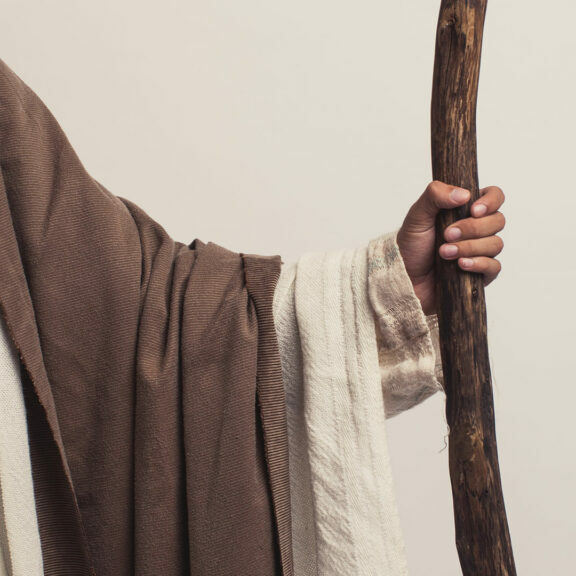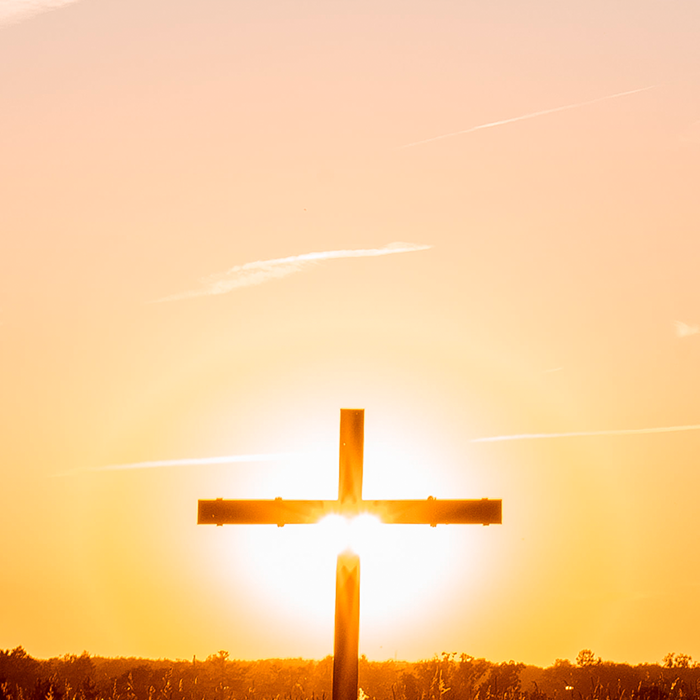December 17, 2017
Pastor Gunnar Ledermann
I don’t like to see people in need, especially during the Christmas season. When I see the commercials on TV or on Facebook asking for donations to help, I wish I had all the time and money in the world to help everyone, but I don’t. I’m sure you feel the same way when you see someone in need. And, I’m sure you wish you had all the time and money to help them too, but you don’t. Realistically, when we step back and look at the time and money we do have, most of us just wish we had the time and money to help those closest to us.
Malachi revealed the people who are truly in need as he ended the final book of the Old Testament. He wrote very clearly about the reality facing everyone on the last day or Judgment Day. On that day, there will be those who recognize their Savior when he returns and those who do not. There will be terrible punishment for those who do not recognize Jesus, but healing for those who Welcome The Savior With Repentant Hearts.
Today we are going to look at the group who really needs help; it’s those people who don’t recognize their Savior. Malachi wrote,
“Surely the day is coming; it will burn like a furnace. All the arrogant and every evildoer will be stubble, and the day that is coming will set them on fire,” says the Lord Almighty. “Not a root or a branch will be left to them.”
Malachi is very clear that these people are in need. It is clear because their punishment for unbelief will be like being set on fire inside a furnace. Malachi says they are basically stubble, the dried-up pieces of trees and plants that make the perfect fire starter. Not only are they the perfect fire starter, but God will not even leave a root or branch from them. This fierce fire will be all consuming, for the arrogant and evildoer.
Arrogant and evildoers don’t sound like the kind of people we should be helping, even if they are in need. If someone is arrogant or evil, then they deserve to be punished. This makes sense to us, but it is not so simple for us to toss them into the wood pile and wait for them to burn. See, we are not the judge. We might define what an arrogant or evildoer is differently than someone else. How do we know who has the right definition of what is right and wrong? This is a good question, but the better question is, who is the judge? When we know who the judge is, then we can ask what is right and wrong, and therefore what kind of behavior gets rewarded and what kind gets punished.
God is the judge of all. He is the one who will come on the last day to separate between the evil and the…what did Malachi call the others? It must be the good, that’s what we would expect for Malachi to write, ‘God separates the good from the bad,’ but notice what Malachi actually wrote, “But for you who revere my name.” God will separate between the arrogant evildoers and those who revere him. The word translated as ‘revere’ is the Hebrew word yarah, meaning fear. Those who fear God, which was the Old Testament way of saying those who believe in God, are the ones who are spared from burning in the furnace. It is clear that on the last day, a very different fate awaits believer and unbeliever.
Malachi knew how God judges between the believer and unbeliever. Malachi knew that God spared those who, as God put it,
“Remember the law of my servant Moses, the decrees and laws I gave him at Horeb for all Israel.”
Mount Horeb was the place Moses led the Israelites to after they were freed from Egypt through God’s ten plagues. God had appointed Moses to be Israel’s leader and share with them God’s plan. When Israel left Egypt, and gathered at Mount Horeb, God gave Moses the Ten Commandments, along with commands on government and commands for worship. God told Moses to tell the people that if they kept God’s commands, then he would continue to take care of them as his chosen people. So, Moses came before the people, told them God’s commands and they agreed to follow them. Fast forward about 1,000 years from Moses and you arrive at Malachi.
By the time Malachi served as a prophet to Israel, they had fallen away. In fact, Israel had separated themselves so far from God, abandoning God for false idols and putting their hope in foreign governments, that he punished them through the Assyrians and Babylonians. They were carried off into exile by these foreign super powers, but by grace he preserved his people while they were in exile. Eventually, God brought them back to Israel to wait for Elijah, as Malachi wrote,
“See, I will send the prophet Elijah to you before that great and dreadful day of the Lord comes.”
God had not left his people without hope as they looked ahead to the last day.
If Elijah was the one whom believers look to for hope, then he might also be the answer for those whom God planned to punish on the last day. If we are to understand how Elijah helped the believers in preparation for the last day, then we have to look outside of Malachi, because he doesn’t explain much about what Elijah would do. He simply said that he was coming. Therefore, we will look to the rest of Scripture to tell us what Malachi means, which leads us to our gospel lesson from John 1,
6 There was a man sent from God whose name was John.
Who became known as John the Baptist, who the leaders of Israel thought might be the promised Messiah. So, they sent messengers to ask John who he was, but he denied the claims that he was the Messiah. Still not knowing who he was, they asked him,
“Then who are you? Are you Elijah?”
He said, “I am not.”
“Are you the Prophet?”
He answered, “No.”
22 Finally they said, “Who are you? Give us an answer to take back to those who sent us. What do you say about yourself?”
23 John replied in the words of Isaiah the prophet, “I am the voice of one calling in the wilderness, ‘Make straight the way for the Lord.’”
Elijah’s return looked different than the people expected. Elijah himself had not returned. Instead, the leaders of Israel recognized that there was something different about John the Baptist. Preaching like his had not been seen for centuries. He called the people to repentance. He told them that their actions did not reflect hearts of faith. Instead, their lives were empty of love for one another. They were like trees producing bad fruit.
And John warned them that if they continued to produce bad fruit, then they would be cut down and thrown into the fire.
Luke 3:9
John the Baptist preached this way because he had been sent to prepare the people’s hearts for the Messiah just like Elijah had been called to bring Israel back to repentance and fear in the one true God.
Repentance was the message of all the prophets who prepared the way for Jesus’ coming. Jesus was the final step in God’s plan before the last day. His coming made a clear division between the believers and unbelievers, or the repentant and unrepentant. All those who put their hope in Jesus as Lord, would face the last day at peace welcoming back their Savior from sin and going with him to live in heaven. On the other hand, all those who rejected Jesus, would face the last day terrified because they held onto their sins and unbelief. They would hear God’s judgment against them and spend eternity in hell.
I don’t like to see people in need, especially during the Christmas season. When I see so many who are hungry or homeless, my heart aches, but I don’t have the time or money to feed them all. Yet, there is another need all people have that I can help with. I know how to help those who do not know their Savior. I can help them by asking them a few questions, “Were you able to buy all the Christmas presents you wanted this year? Were you able to gather with all of your family and friends in one place, happy, jolly and full of cheer this Christmas? Are there some things you did this past year that you hope someone doesn’t find out about so that you don’t lose a job, a friend or a marriage?”
These questions reveal that we are all in need this Christmas. We all need to be reminded that the punishment sin causes us is not only reserved for the last day, but we suffer now because of sin. We suffer like Israel whose unbelief and unrepentant hearts forced God to punish them through foreign powers who took them out of the promised land and put them into exile. As we ponder our sins and the hurt they cause us, we wonder what could save us and all those like us who are in need.
You and I cannot save all those in need of salvation from sin. In fact, we cannot save ourselves, but Jesus did save us. He left heaven to be born into this broken world and live among needy people. He used his power as God to heal many and used it to reveal that he was the promised Messiah John had been preparing the people for, but Jesus did not only heal the people physically nor did he heal every sick person in the world, at least not physically. Jesus came to save us and all people from our true need, freedom from the punishment of our sins which is death and hell. Jesus took our punishment for us, freeing us from God’s judgment. He also rose from the dead assuring us that though we die, we will be brought back to life and taken to heaven to live before God who will take care of our every need. As Malachi wrote,
“But for you who revere my name, the sun of righteousness will rise with healing in its rays. And you will go out and frolic like well-fed calves.”
Jesus brought all of us what we needed most this Christmas and he gives us true Christmas joy.
You and I won’t be able to help everyone in need this Christmas. We may not be able tell thousands or even hundreds of people about their true need for Jesus this Christmas. Realistically, we will get the chance to bring ourselves, our family and some friends with us to hear the message this Christmas. And when you share the message with your fellow believers, watch their joy be renewed. And when you get to share the message with someone new, you might get to watch them cross over the dividing line from unbelief to faith. You might get to see the Holy Spirit work faith in their heart as he causes them to realize that repentance or admitting their faults, guilt and sin before God is not followed by judgment, embarrassment or division. Instead, repentance before God is followed with the words you are forgiven and dearly loved. My fellow Repentant Hearts, Welcome Your Savior this Christmas with joy, he has given you what you need most. Amen.



